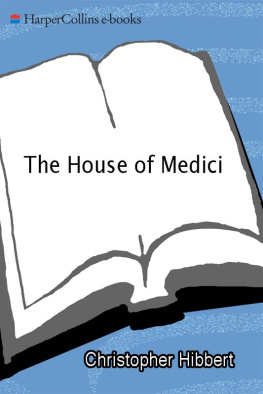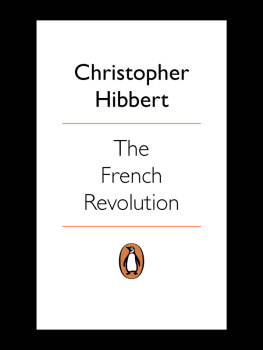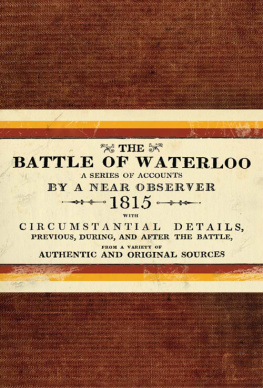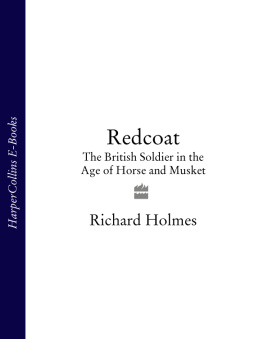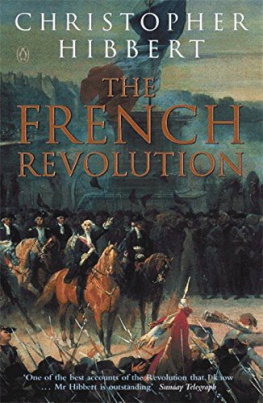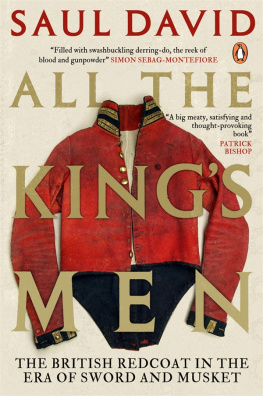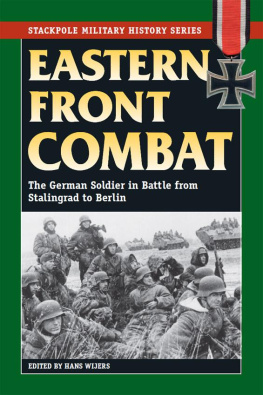CONTENTS.
The Writers parentage and education, page
Sails for South America,
Arrival of General Whitelock, and departure for Buenos Ayres,
Arrival at Cork,
Marches to Abrantes,
Commencement of the retreat to Corunna,
Sufferings of the army between Astorga and Villa Franca,
Arrival at Corunna,
Arrival in England, and kindness of the people,
Embarked for Lisbon,
Battle of Fuentes de Honore,
Battle of Vittoria,
Battle of Toulouse,
Battle of Waterloo,
JOURNAL OF A SOLDIER
OF THE
SEVENTY-FIRST REGIMENT OF FOOT.
F ROM motives of delicacy, which the narrative will explain, I choose to conceal my name, the knowledge of which can be of little importance to the reader. I pledge myself to write nothing but what came under my own observation, and what I was personally engaged in.
I was born of poor but respectable parents, in Edinburgh, who bestowed upon me an education superior to my rank in life. It was their ambition to educate me for one of the learned professions; my mother wishing me to be a clergyman, my father to be a writer. They kept from themselves many comforts, that I might appear genteel, and attend the best schools: my brothers and sister did not appear to belong to the same family. My parents had three children, two boys and a girl, besides myself. On me alone was lavished all their care. My brothers, John and William, could read and write, and at the age of twelve years, were bound apprentices to trades. My sister, Jane, was made, at home, a servant of all-work to assist my mother; I alone was a gentleman in a house of poverty.
My father had, for sometime, been in a bad state of health, and unable to follow his usual employment. I was unable to earn any thing for our support. In fact, I was a burden upon the family. The only certain income we had, was the board of my two brothers, and a weekly allowance from a benefit society of which my father was a member. The whole sum was five shillings for my brothers, and six from the society, which were soon to be reduced to three, as the time of full sick-money was almost expired.
I do confess, (as I intend to conceal nothing,) this distressed state of affairs softened not my heart. I became sullen and discontented at the abridgment of my usual comforts; and, unnatural wretch that I was! I vented that spleen upon my already too distressed parents. My former studies were no longer followed, for want of means to appear as I was wont. That innate principle of exertion, that can make a man struggle with, and support him in the greatest difficulties, had been stifled in me by indulgence and indolence. I forsook my former school-fellows, and got acquainted with others, alas! not for the better.
I was now sixteen years of age, tall and well made, of a genteel appearance and address. Amongst my new acquaintances, were a few who had formed themselves into a spouting club, where plays were acted to small parties of friends, who were liberal in their encomiums. I was quite bewildered with their praise, and thought of nothing but becoming another Rosicus,making a fortune and acquiring a deathless name. I forsook my classical authors for Shakespeare, and the study of the stage. Thus, notwithstanding the many tears of my mother, and entreaties of my father, I hurried to ruin. I was seldom at home, as my parents constantly remonstrated with me on the folly of my proceedings. This I could not endure: I had been encouraged and assisted by them in all my former whims. All my undertakings were looked upon, by them, as the doings of a superior genius. To be crossed now, I thought the most unjust and cruel treatment.
I had, through the interference of my new acquaintances, got introduced to the Manager of the Theatre at Edinburgh, who was pleased with my manner and appearance. The day was fixed on which I was to make my trial. I had now attained the summit of my first ambition. I had not the most distant doubt of my success. Universal applause, crowded houses, and wealth, all danced before my imagination. Intoxicated with joy, I went home to my parents. Never shall the agony of their looks be effaced from my memory. My mothers grief was loud and heart-rending, but my fathers harrowed up my very soul. It was the look of despairthe expression of his blasted prospects he had so long looked forward to, with hopes and joy,hopes, that had supported him in all his toil and privations, crushed in the dust. It was too much; his eyes at length filled with tears, and, raising them to heaven, he only said, or rather groaned, God, thy ways are just and wisethou hast seen it necessary to punish my foolish partiality and pride. But, O God! forgive the instrument of my punishment. Must I confess, I turned upon my heel and said, with the most cool indifference, (so much had the indulgence of my former life blunted my feelings towards my parents,) When I am courted and praised by all, and have made you independent, you will think otherwise of my choice. Never, never, he replied,you bring my grey hairs with sorrow to the grave."Thomas, Thomas, you will have our deaths to answer for, was all my mother could say;tears and sobs choked her utterance.
I was immoveable in my resolves. The bills were printed, and I had given my word. This was the last time I ever saw them both. The scene has embittered all my former days, and still haunts me in all my hours of thought. Often, like an avenging spirit, it starts up in my most tranquil hours, and deprives me of my peace. Often, in the dead of night, when on duty, a solitary sentinel, has it wrung from my breast a groan of remorse.
Scarce had I left the house, when a sensation of horror at what I had done pierced my heart. I thought the echo of my steps sounded, You will have our deaths to answer for."I started, and turned back to throw myself at the feet of my parents, and implore their forgiveness.Already I was at the door, when I met one of my new acquaintances, who inquired what detained me? I said, I must not go; my parents are against my going, and I am resolved to obey them. He laughed at my weakness, as he called it. I stood unmoved. Then, with an affected scorn, he said I was afraid, conscious I was unable to perform what I had taken upon me. Fired by his taunts, my good resolves vanished, and I once more left my parents door, resolved to follow the bent of my own inclinations.
I went to the Theatre, and prepared for my appearance. The house was crowded to excess. I came upon the stage with a fluttering heart, amidst universal silence. I bowed, and attempted to speak; my lips obeyed the impulse, but my voice had fled. In that moment of bitter agony and shame, my punishment commenced.I trembled; a cold sweat oozed through every pore; my father and mothers words rung in my ears; my senses became confusedhisses began from the audienceI utterly failed. From the confusion of my mind, I could not even comprehend the place in which I stood. To conclude, I shrunk unseen from the theatre, bewildered, and in a state of despair.



